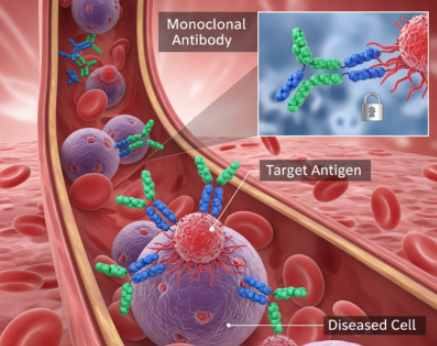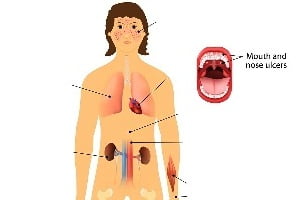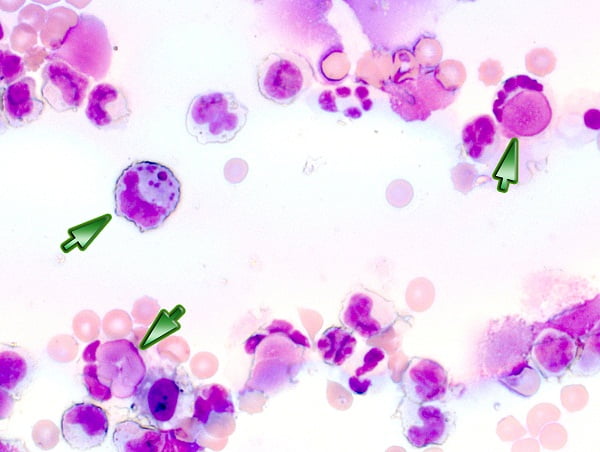Browsing: Autoimmune Disorders
 The page provides quick access to a list of common auto immune disorders, diseases, syndromes, health conditions, and other topics of health importance. The list is organized alphabetically. Links are provided to respective diseases sections that serve as a comprehensive and ultimate guide about the disease or health condition.
The page provides quick access to a list of common auto immune disorders, diseases, syndromes, health conditions, and other topics of health importance. The list is organized alphabetically. Links are provided to respective diseases sections that serve as a comprehensive and ultimate guide about the disease or health condition.
Immune system has the potential to guard us against germs such as bacteria, fungus and viruses present around us. When any foreign particle enters our body, it activates fighter cells to attack them. The immune system also has the ability to differentiate between foreign cells and our body’s own cells.
Immune system disorders lead to reduced activity or hyperactivity of immune system. If your immune system gets hyperactive, then your body may attack its own tissues. Immune deficiency diseases reduce your body’s ability to fight pathogens, thereby increasing risk of infections.
One of the most common causes of an autoimmune disease is genetic predisposition. Certain environmental factors such as an infection, stress, medication, diet or ultraviolet radiation can trigger symptoms of an autoimmune disease. Researchers believe women are more susceptible than men to suffer from an autoimmune condition. This may be due to severe hormonal changes that a woman undergoes throughout her life.
There are several autoimmune disorders which may be mild to disabling, depending on the type of organ affected and in what degree. Some common autoimmune diseases are diabetes mellitus, Rheumatoid arthritis, Systemic lupus erythematosus, Graves’ disease and Celiac disease.
Role of Targeted Monoclonal Antibody Therapy in Autoimmune Disease Treatment The immune system is the defence system of our body.…
Lupus Complications
Inflammation is a common problem in lupus. It can affect several areas of your body such as your kidney, brain, nervous system, blood vessels, heart, and lungs. Having lupus can increase your chances of developing infections, cancers, and bone problems. Women with lupus are at higher risk of miscarriage and early birth.
What Are the Symptoms of Lupus?
Many people who suffer with lupus fall ill and suffer with mild but prolonged fever. They generally complain about skin rashes, fatigue, hair loss, and sore mouths. In some people, kidney may be affected. Kidney involvement may be life threatening. In some cases, there may be certain blood-related problems.
What Causes Lupus?
Who Gets Lupus? Anyone can get lupus. But women are about nine times more prone to develop lupus as compared…
What Is Lupus?
Lupus is a chronic auto-immune disease in which your body’s immune system becomes hyperactive and attacks your own body’s normal and healthy tissues. This causes a little inconvenience in some people. But in some people, it can cause severe problems such as inflammation, damage to joints, skin issues, kidneys and blood involvement.
Treatment for Lupus
Currently, there’s no cure for lupus, but treatments can help you ease the symptoms to improve the quality of life. Treatment involves medication as well as lifestyle changes. Exposure to sunlight can worsen your symptom. It is important to avoid being in the sun or apply sunscreen when you are in sun.
Diagnosing Lupus
Diagnosis of the disease lupus is difficult because its signs and symptoms vary a lot from person to person. These signs may vary over time and overlap with many other conditions. There is no one test that can confirm lupus. A combination of tests including blood and urine tests, imaging tests leads to the diagnosis.










